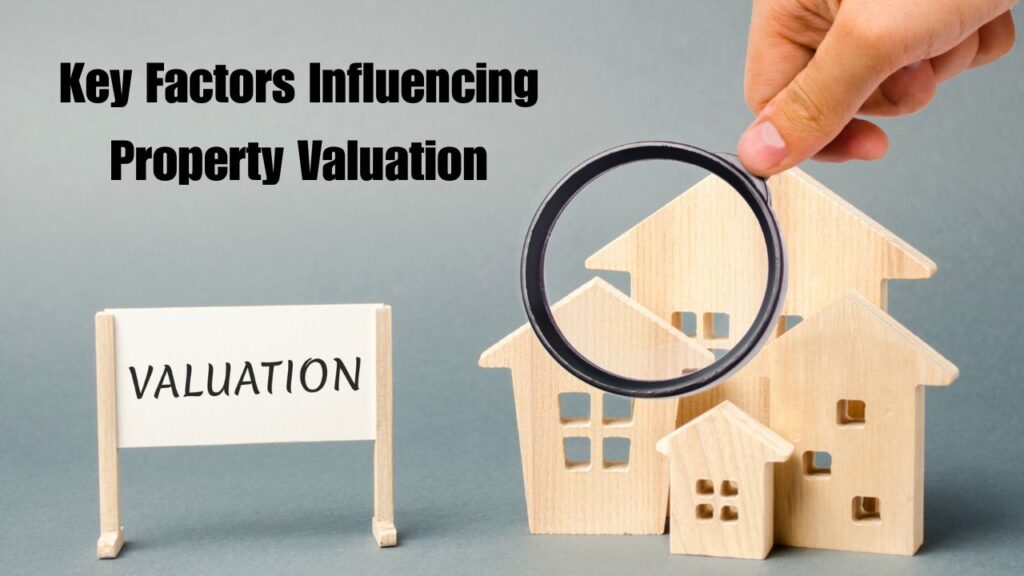Influence Property Valuation in Australia – Property valuation plays a vital role in Australia’s real estate market, as it determines the fair market price of residential, commercial, and industrial properties. Whether you’re buying, selling, refinancing, or investing, understanding the key factors that influence property valuation can help you make informed decisions. Australian property values are affected by a combination of economic trends, location benefits, property condition, and market demand. This article explores the top seven factors that professional valuers consider while estimating property worth in Australia.

Location and Accessibility in Australian Property Valuation
Location remains the most significant factor influencing property valuation in Australia. Properties situated near essential amenities such as schools, shopping centers, hospitals, and public transport hubs tend to have higher market value. Suburbs in Sydney, Melbourne, and Brisbane with close proximity to central business districts (CBDs) or scenic coastal areas usually attract premium prices. Moreover, accessibility to highways, metro lines, and employment zones increases convenience and desirability, which directly impacts valuation. Valuers also assess the area’s future development potential and infrastructure projects that could enhance long-term value.
Impact of Property Size, Design, and Condition on Valuation
The size, structure, and overall condition of a property greatly influence its valuation across Australia. Larger land sizes generally offer higher value, especially when the zoning allows for expansion or redevelopment. Similarly, the number of bedrooms, bathrooms, and parking spaces plays a key role in determining worth. Modern architecture, high-quality materials, and recent renovations can significantly increase the property’s market appeal. On the other hand, older homes requiring repairs may receive a lower valuation due to the cost of maintenance or structural upgrades needed to meet Australian building standards.
| Factor | Influence on Valuation |
|---|---|
| Location | Proximity to amenities, transport, and CBD |
| Property Size | Larger plots and usable area increase value |
| Condition | Renovated or new properties gain higher prices |
| Market Demand | High buyer competition drives prices up |
| Economic Trends | Interest rates and inflation affect buyer affordability |
| Local Development | Upcoming infrastructure projects add value |
Economic Conditions and Market Demand in Australian Real Estate
Economic performance is a crucial factor that directly affects property valuation in Australia. When interest rates are low, mortgage affordability increases, leading to stronger buyer demand and higher property prices. Conversely, rising interest rates or inflation can slow the market. Employment rates, wage growth, and population trends also influence housing demand. Additionally, supply and demand imbalance within specific suburbs can create price fluctuations. For example, limited housing supply in popular cities like Sydney and Perth often leads to competitive bidding and higher valuations from professional valuers.
Influence of Comparable Sales in Property Appraisal
Comparable sales, often referred to as “comps,” are another essential factor in determining property value in Australia. Valuers analyze recent sales of similar properties within the same suburb or neighborhood to estimate fair market value. These comparisons consider land size, structure, design, and amenities to ensure accurate pricing. The reliability of comparable data helps maintain transparency in property transactions and provides a benchmark for buyers, sellers, and investors across the Australian property market.
Frequently Asked Questions (FAQs)
1. What is the main factor affecting property valuation in Australia?
Location is the primary factor influencing property valuation across Australia.
2. How do renovations impact a property’s valuation?
Renovations and upgrades generally increase a property’s market value by improving its appeal and condition.
3. Do economic factors influence property prices in Australia?
Yes, interest rates, inflation, and employment trends directly affect property prices and valuations.
4. Why do valuers use comparable sales for estimation?
Comparable sales provide real-time market benchmarks for accurate and fair property valuations.




